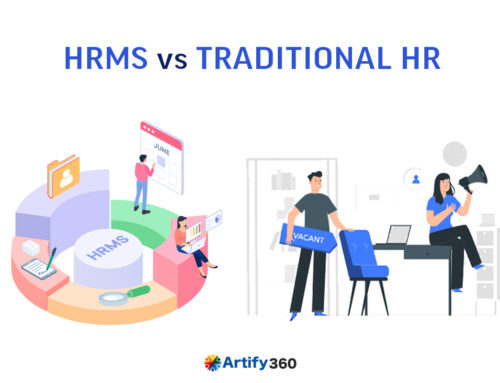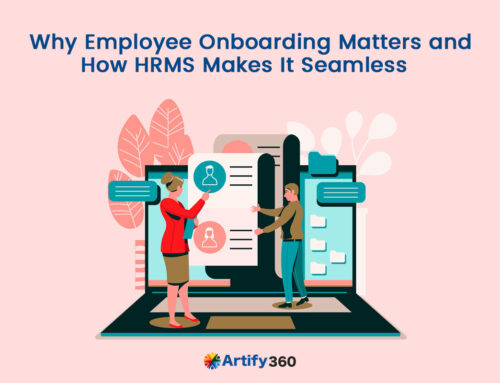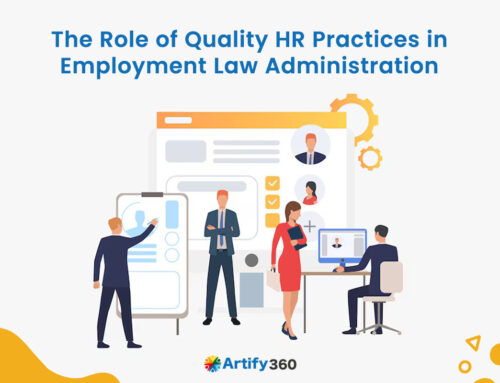Do startup businesses need an HR strategy? How important is HRMS for startups? You will be amazed to learn that many startup firms are yet to recognize HR personnel or functions as a contributing factor to their success formula.
This post helps you get an overall understanding of how startups can benefit from realizing the maximum potential of their HR processes.
HR Software for Startups – Current State & Changing Needs
Human resources management in the startup world is a tricky one. Since multitasking is the key in such vibrant and dynamic environments, the operations team, the accounts staff, or even the organization’s founding members may typically carry out HR functions.
We are not against this concept. It could be a simple reason, like cost-cutting or a lean team business model, that makes you follow this. But hear us out. You can have a dedicated HR process in your startup and still add value to the core of your business model. We will analyze this in the coming sections.
Startup Segments where HR Can Excel
To understand the value of HR to an organization, you need to get an overview of potential areas where they can perform with ease. In most companies, it is presently limited to hiring, recruiting, and employee engagement activities. In reality, this is just a case of underutilizing your HR domain.
A well-defined HR strategy can contribute to formulating your company’s earlier business model and creating a path for the work culture to be followed. Adoption of automated processes begins with HR, and it can expand to all areas of the business. It is by engaging with these factors that startups can get the most out of their HR domain.
The areas of potential for HRMS for startups are detailed below:
Business Strategy
The HR department is crucial for building a working strategy within the business. This would include numerous sub-niches like learning employee trends, unlearning traditional employment practices, focusing on cost-efficiency operations, and channeling realistic recommendations within the company.
Automation
The use of automated tools and processes within a startup model begins with the HR functions. As a thumb rule, resource management within an organization comes before accounting, leadership, client coordination, and business development channels.
To get the best out of resource utilization internally, an automated process should be in place. An HR SaaS product or a solutions partner can help you with this goal. Once it is set up, other domains of the startup can follow suit and build a robust automation process.
Company Spokesperson
For early-stage startups, an HRMS is no less than a company spokesperson. This is not just about keeping pace with the internal communication between management and employees but also covers external customer coordination and various representative talks for purposes of mergers, acquisitions, investor meetings, etc.
Compliance
Statutory compliances are part of an organization, irrespective of its operating sector. You will be surprised to learn that HR resources can contribute effectively to this role. Most internal compliance programs are set up to create a work-life balance. HR is the niche that can strike the right chord for this critical feature.
External compliance norms and authority regulations are directly proportional to a company’s growth and arrangement of predictive business patterns. The implementation of HR solutions can be a guiding light in this regard.
Advanced Employee Tasks
An organized HR structure with a defined flow will help you engage in advanced employee tasks beyond regular hiring, recruiting, payroll processing, and company activities/procedures. With excellent solution tools that can partner and provide for your HR functions, you can build to a level with many attractive features.
These include personalized performance training, benefit-based development programs, adoption of focus groups to build organization morale, and feasible procedure implementation to attract, retain, and develop employees.
Benefits of HRMS for Startups
The primary merits that your startup organization can achieve by implementing a top-notch HR strategy are as follows:
- Satisfaction: Your company as a whole takes care of the customer satisfaction criteria. From the organization’s perspective, the same is assured with the support of effective HR functions.
- Positive Culture: A properly laid-out HR process is capable of providing a harmonious company environment. Being praised for a positive work culture is the right step in the direction of scaling your firm.
- Information and Communication: Traditional HR channels also primarily focus on these tasks. But for startups, focusing on organizational information and setting up an efficient communication flow is going to be a game-changer. This feature might even address their performance in investment and fund-raising activities.
- Catering to Company Vision: Your startup’s business model will have motto statements regarding vision, mission, and core values. If the HR process is implemented from the beginning and actively followed through, it can help create a systematic structure within the organization that adds value to the company statements.
- Automated Process Setup: When your startup grows, you must ensure that there is an automated process in place where the machine works for itself. Every resource should just be part of the process. An ideal HR structure can help with the creation of such a structure within your organization.
Wrapping Up
For startups and their business growth prospects, the key is to set up a human resources workflow that is guaranteed to win. The personnel, processes, tools, strategies, and HR department in general are just elements of this workflow. Once the structure is set, you can add and align the elements with the core HR statement, depending on your startup’s positioning. Artify360 is one such HRMS software that can help startups manage their human resources. Please read more to understand how Artify can help startups in the UAE, Saudi Arabia, and the rest of the Middle East.
There is a nice article in the BBC about transforming the employee experience through technology. Read here.






